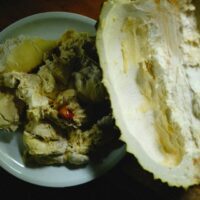What is Psoriasis?
Psoriasis is a long-term inflammatory skin disease that results from an overactive immune system. Instead of the usual 28–30-day cycle, skin cells in people with psoriasis grow in just 3–4 days. The new skin cells pile up on the surface before old ones can shed, forming thick, scaly patches.
Common Symptoms of Psoriasis
The symptoms of psoriasis can vary widely depending on the type, severity, and location on the body. However, several hallmark signs are commonly observed in most individuals with the condition. These symptoms may range from mild to severe and can affect physical appearance, comfort, and quality of life.
Typical signs include:
- Red patches of skin covered with thick, silvery-white scales
These plaques are often seen on the scalp, elbows, knees, and lower back. They can be itchy and painful, and in severe cases, they may crack and bleed.
- Dry, cracked skin that may bleed
Affected areas can become extremely dry, leading to painful fissures, especially during flare-ups or in colder weather.
- Itching, burning, or soreness
Discomfort is common and may interfere with sleep or daily activities. Some people report a burning sensation in affected areas.
- Thickened, pitted, or ridged nails
Nail psoriasis can cause discoloration, abnormal nail growth, and even separation of the nail from the nail bed.
- Stiff and swollen joints
In cases where psoriasis is accompanied by psoriatic arthritis, joint pain, stiffness, and swelling can occur, particularly in the fingers, toes, and lower back.
These symptoms often go through cyclical patterns—flares may last for weeks or months and then subside, sometimes entering a period of remission. Various triggers such as stress, infections, certain medications, or environmental factors like cold weather can cause flare-ups or worsen existing symptoms.
Causes and Risk Factors
The exact cause of psoriasis is not fully understood, but it’s believed to be linked to genetic and immune system factors.
Major Causes and Triggers:
- Immune System Dysfunction: Autoimmune attacks cause skin cells to multiply too fast.
- Genetics: A family history of psoriasis increases the risk.
- Environmental Triggers:
- Stress
- Skin injuries (cuts, burns, insect bites)
- Certain infections (e.g., strep throat)
- Cold, dry weather
- Smoking and heavy alcohol consumption
- Certain medications (like lithium or beta-blockers)
Types of Psoriasis
There are several types, each with distinct characteristics:
1. Plaque Psoriasis (Psoriasis Vulgaris)
- Most common type (about 80–90% of cases)
- Raised, red patches covered with silvery-white buildup
- Commonly affects elbows, knees, lower back, and scalp
2. Guttate Psoriasis
- Small, drop-shaped sores
- Often triggered by bacterial infections
- More common in children and young adults
3. Inverse Psoriasis
- Shiny, smooth, red lesions in skin folds (like under the breasts, around the groin, or armpits)
- Aggravated by sweating and friction
4. Pustular Psoriasis
- White pustules (non-infectious) surrounded by red skin
- Can be localized (hands and feet) or generalized
5. Erythrodermic Psoriasis
- Rare but severe
- Intense redness, shedding of skin layers, fever, and dehydration
- Can be life-threatening and requires immediate medical attention
Psoriatic Arthritis
Around 30% of people with psoriasis also develop psoriatic arthritis, which causes:
- Joint pain and stiffness
- Swelling and tenderness
- Reduced range of motion
- Nail changes
Early diagnosis and treatment are crucial to prevent joint damage.
Diagnosis
Diagnosis is usually made by a dermatologist through:
- Physical examination of skin, nails, and scalp
- Biopsy (if needed) to rule out other skin disorders
- Blood tests or imaging (if joint pain is present) to check for psoriatic arthritis
Treatment Options
Though there is no cure, treatment can manage symptoms effectively. Treatment depends on the type and severity.
1. Topical Treatments
- Corticosteroids: Reduce inflammation and itching
- Vitamin D analogs (e.g., calcipotriene)
- Salicylic acid: Helps remove scales
- Coal tar: Slows skin cell growth
2. Phototherapy (Light Therapy)
- Controlled exposure to ultraviolet (UVB) light
- PUVA therapy (Psoralen + UVA) for severe cases
3. Systemic Medications (For moderate to severe psoriasis)
- Oral medications: Methotrexate, cyclosporine, acitretin
- Biologics: Target specific parts of the immune system (e.g., TNF-alpha inhibitors, IL-17 inhibitors)
4. Lifestyle & Home Remedies
- Regular moisturizing
- Avoiding triggers (stress, alcohol, harsh skin products)
- Healthy diet and weight management
- Oatmeal baths or aloe vera gels for soothing
Living with Psoriasis
Psoriasis can have a profound psychological and social impact, leading to:
- Low self-esteem
- Social withdrawal
- Depression or anxiety
Support groups, therapy, and education about the condition can help people cope better.
Psoriasis is a complex and chronic condition, but with the right management—ranging from topical therapies to advanced biologic drugs—most people can lead a normal and fulfilling life. Early diagnosis, personalized treatment, and a supportive lifestyle are key to controlling symptoms and preventing complications like psoriatic arthritis.













